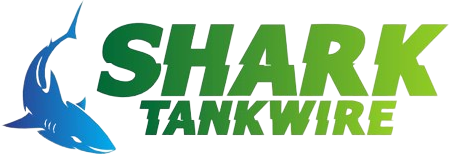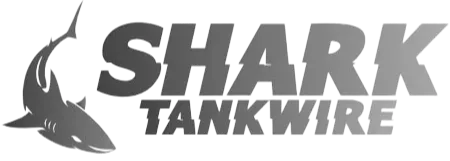What was the outcome of FlyWithWine’s pitch on Shark Tank Season 15? FlyWithWine did not receive an investment on Shark Tank Season 15. The Sharks expressed concerns over the company’s lack of profitability and the fact that the patent for their flagship product was not owned by the company.
Summary
- FlyWithWine, a company specializing in wine travel products, appeared on Shark Tank Season 15 seeking a $500,000 investment for 8% equity.
- The Sharks were impressed with the company’s sales but raised concerns about the lack of profitability and the fact that the patent for the company’s flagship product was owned by an outside investor.
- Despite the promising sales figures, the deal fell through due to the aforementioned issues, leaving FlyWithWine without a Shark Tank investment.
FlyWithWine Update | Shark Tank Season 15
FlyWithWine, a Napa Valley-based company, is revolutionizing the way wine enthusiasts travel with their favorite bottles. Their innovative product line, including the flagship VinGardeValise® wine suitcase, offers a safe and stylish solution for transporting wine, spirits, and glassware.
In a bid to further expand their reach and secure additional funding, FlyWithWine co-founders Ryan Neergaard and Ron Scharman took their pitch to the sharks on Season 15 of ABC’s hit show Shark Tank.
FlyWithWine’s Mission and Products
FlyWithWine’s mission is to make traveling with wine and spirits effortless and enjoyable. Their product line caters to both everyday wine lovers and industry professionals, offering a range of solutions to suit diverse needs.
The VinGardeValise®, a hard-shell suitcase designed specifically for wine bottles, is their most popular product, ensuring the safe transportation of fragile bottles during travel.
The company also offers backpacks, personal carriers, and custom inserts for various types of wine and spirits bottles.
The Shark Tank Pitch
FlyWithWine’s appearance on Shark Tank was met with both excitement and scrutiny. While the Sharks were impressed with the company’s innovative products and strong sales figures, concerns were raised regarding profitability and patent ownership.
The co-founders sought a $500,000 investment for 8% equity in the company, but ultimately, a deal was not reached.
| Entrepreneurs | Ryan Neergaard and Ron Scharman |
|---|---|
| Business | FlyWithWine |
| Ask | $500,000 for 8% equity |
| Deal | No Deal |
| Sharks | Mark Cuban, Barbara Corcoran, Kevin O’Leary, Lori Greiner, Robert Herjavec |
| Season/Episode | Season 15, Episode 9 |
| Original Air Date | December 15, 2023 |
| Website | FlyWithWine |
| Key Points of Pitch |
|
| Why Sharks Declined |
|
The Sharks’ Concerns
Despite FlyWithWine’s impressive sales figures—$4.2 million in lifetime sales and a projected $2.5 million for the current year—the Sharks expressed significant reservations about the company’s financial health and intellectual property ownership.
1. Lack of Profitability
A key concern raised by the Sharks was FlyWithWine’s lack of profitability. Despite robust sales, the company was not yet turning a profit, raising questions about the sustainability of its business model.
Shark Mark Cuban, known for his astute business acumen, pointed out that the company’s high customer acquisition costs and operational expenses were eating into its revenue.
Financial expert and Shark Tank investor Kevin O’Leary echoed this sentiment, stating, “Sales are vanity, profits are sanity. You need to show us a clear path to profitability if you want our investment.”
The Sharks’ concerns highlighted the importance of not just generating revenue but also managing costs effectively to achieve sustainable growth.
2. Patent Ownership Issue
Another major concern was the fact that FlyWithWine did not own the patent for its flagship product, the VinGardeValise®. The patent was held by an outside investor, creating a potential risk for the company’s future.
This lack of control over a crucial intellectual property asset raised red flags for the Sharks, who emphasized the importance of owning and protecting a company’s core innovations.
Intellectual property lawyer and Shark Tank regular Daymond John weighed in on the issue, stating, “Patent ownership is critical for a company’s long-term success. Without it, you’re vulnerable to competition and potential legal challenges.”
The Sharks’ concerns underscored the importance of securing intellectual property rights to safeguard a company’s competitive advantage.
The Outcome of the Deal
Despite their innovative product and impressive sales, FlyWithWine’s journey on Shark Tank ended without a secured investment.
The Sharks’ concerns regarding profitability and patent ownership ultimately proved insurmountable, leading to a missed opportunity for the company to gain financial backing and expert mentorship.
The co-founders’ pitch was met with initial enthusiasm from the Sharks, who recognized the potential of FlyWithWine’s products. However, as the discussion progressed, the Sharks’ reservations about the company’s financial model and intellectual property ownership became apparent.
Despite efforts to address these concerns, a deal could not be reached, leaving FlyWithWine to navigate its future growth without the support of a Shark Tank investor.
FlyWithWine’s Future
While the Shark Tank experience did not result in an investment, it provided valuable exposure and feedback for FlyWithWine.
The company’s appearance on the show generated significant interest and awareness among potential customers, investors, and industry partners.
The national platform offered by Shark Tank served as a springboard for FlyWithWine to showcase its products to a wider audience and gain valuable insights from seasoned entrepreneurs.
1. Potential Impact of Shark Tank Appearance
The Shark Tank effect is a well-documented phenomenon, where companies that appear on the show often experience a surge in sales and brand recognition, even if they don’t secure an investment.
This increased visibility can open doors to new opportunities, such as partnerships, collaborations, and even future investment deals.
“Appearing on Shark Tank is a powerful marketing tool,” says marketing expert and entrepreneur Neil Patel. “Even if you don’t get a deal, the exposure can be invaluable for your brand.” FlyWithWine is poised to capitalize on this exposure, leveraging the increased awareness to drive sales and attract potential investors.
2. Company’s Next Steps
Moving forward, FlyWithWine will need to address the concerns raised by the Sharks to achieve sustainable growth. The company’s leadership team is committed to improving profitability by optimizing operations, reducing costs, and exploring new revenue streams.
Additionally, they are actively seeking to secure the patent for the VinGardeValise® to protect their intellectual property and strengthen their competitive advantage.
As FlyWithWine continues its journey beyond Shark Tank, it remains focused on its mission to provide innovative travel solutions for wine enthusiasts worldwide.
The company’s resilience and determination, coupled with the valuable lessons learned from their Shark Tank experience, will undoubtedly shape their path to future success.
FAQs
What products does FlyWithWine offer?
FlyWithWine offers a range of innovative products designed for the safe and stylish transportation of wine, spirits, and glassware. Their flagship product, the VinGardeValise®, is a hard-shell suitcase with a patented design that safeguards bottles from breakage during travel. They also offer backpacks, personal carriers, and custom inserts to accommodate various types of bottles and glasses.
Why didn’t the Sharks invest in FlyWithWine?
Despite strong sales figures and innovative products, the Sharks ultimately declined to invest in FlyWithWine due to concerns about the company’s profitability and patent ownership. The lack of a clear path to profitability and the fact that the patent for their flagship product was not owned by the company raised red flags for the investors.
What is the current status of FlyWithWine?
FlyWithWine continues to operate and sell its products online and through various retail partners. While they did not secure an investment on Shark Tank, the exposure from the show has helped to increase brand awareness and drive sales. The company is actively working to address the concerns raised by the Sharks, focusing on improving profitability and securing intellectual property rights.
The Bottom Line
FlyWithWine’s experience on Shark Tank serves as a valuable lesson for aspiring entrepreneurs. While the company showcased a promising product and impressive sales, the lack of profitability and patent ownership issues ultimately deterred the Sharks from investing. This highlights the importance of not only developing a great product but also ensuring a sound financial model and securing intellectual property rights to attract investors.
Despite the outcome, FlyWithWine’s appearance on Shark Tank provided valuable exposure and feedback, which the company can leverage for future growth. The experience underscores the importance of thorough preparation, addressing potential investor concerns, and having a clear path to profitability when seeking investment. FlyWithWine’s journey is a testament to the resilience and determination required for entrepreneurial success, even in the face of setbacks.








